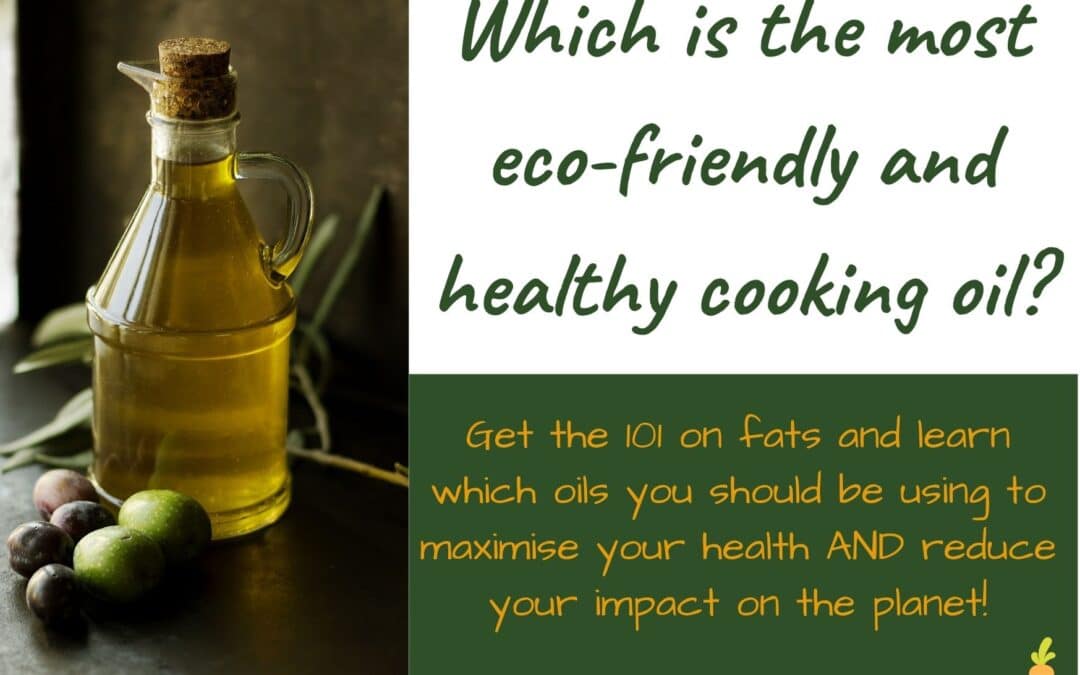With so much fats confusion, it’s hard to know which is the most eco-friendly and healthy cooking oil. There are so many to choose from!
Fats are one of the areas of healthy eating that cause the greatest amount of confusion! Should you eat them? Is saturated ok? Does it help you lose weight or make you get fat? If vegetable oils are made from vegetables are they good for you like veg?
If you’re here just for an answer, hop straight down to the conclusion… if you want to understand this a little more, read on!
This article contains some affiliate links, so if you click on them and buy through my link I'll get a couple of pennies to fund my research time. The price to you doesn't change, and I make my decision before finding the link, so it's unbiased.
Fats 101
Let’s clear up some of the mess and confusion and set out the truth about fats before we get into this…
Fats are a vital part of your diet:
- They are a source of energy and can be easily stored (not always a good thing!)
- Fats make up the primary component of cell membranes i.e. they keep the cell walls standing strong and ensure that only the right things get through
- Fat keeps you full for longer, causing you to eat less frequently
- Some fats are vital for managing inflammation and preventing damage to all cells (omega 3 fats)
Fats do not necessarily make you fat. If you eat more calories in any form than you use, you will put on weight. Sugars can also be converted to fat!
Not all cholesterol is bad! There is HDL cholesterol and LDL cholesterol.
Not all fats are created equal though, and there are definitely some we should favour in our diets and some to reduce…
Polyunsaturated fats (Omega 3 and 6)
These oils should be prioritised and made an essential element of your diet. They have a host of benefits:
- Lower heart rate and improve heart rhythm
- Decrease the risk of blood clotting
- Lower triglycerides
- Reduce blood pressure
- Improve blood vessel function and delay the build up of plaque in coronary arteries
Omega 3 are found in oily fish, like salmon, tuna, mackerel, chia seeds, flax seeds and walnuts. Omega 6 are found in nuts, seeds and some vegetable oils (corn, soybean and sunflower)
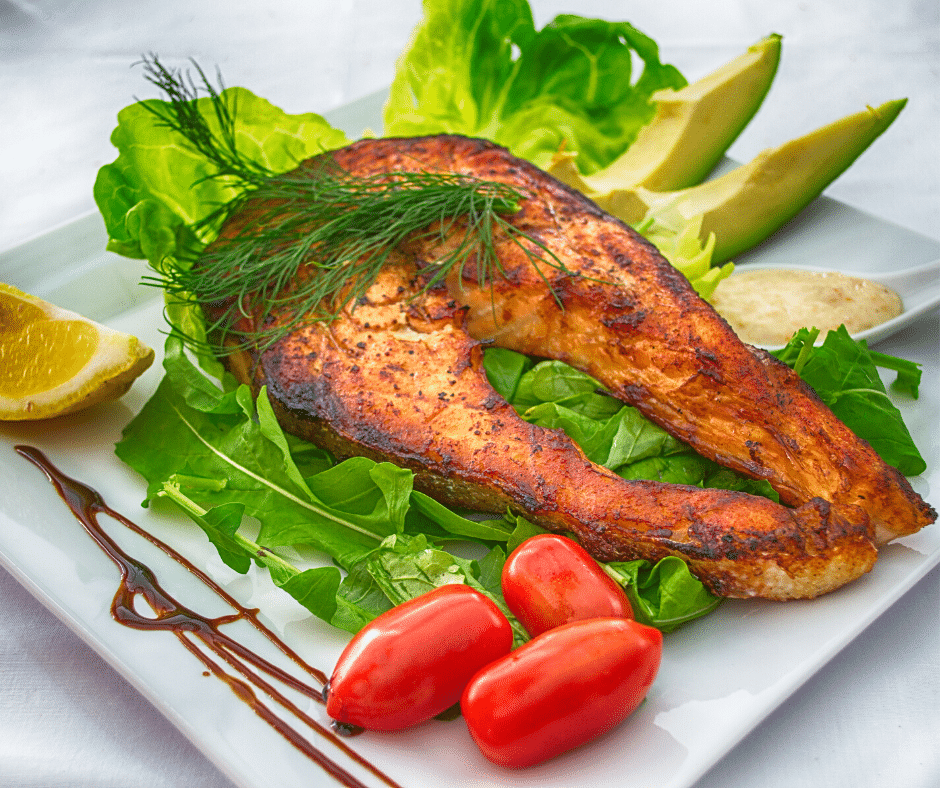
Monounsaturated fats
Also considered healthy fats; these can lower LDL cholesterol, lower your risk of heart disease and are a good source of vitamin E – an important antioxidant which protects your cells from damage.
Found in avocados, almonds, cashews, peanuts, cooking oils from plants and seeds like canola, olive, peanut, soybean, rice bran, sesame and sunflower.
Saturated fats
These are generally given a bad name, and the volume of these should be controlled, but it shouldn’t be removed completely as it does have some benefits:
- It’s essential for proper nutrient absorption
- It’s more satisfying and filling so it can help curb cravings and keep us full for longer
- These may boost metabolism and therefore aid weight loss efforts!!
Trans fats
These are the ones with no place in our diets, and that’s mainly because they are largely created by our processes and are not natural.
Trans fats can raise LDL cholesterol (bad) and lower HDL cholesterol (good) which increases the risk of heart disease and strokes. They also lead to a higher risk of type 2 diabetes.
These have been largely banned but are still sometimes found in some processed foods and hydrogenated fats and oils i.e. margarines and vegetable oils, microwave popcorns (!), fried fast foods, bakery goods made with vegetable shortening, meat pies and sausage rolls, crisps,pizzas and sweet pies.
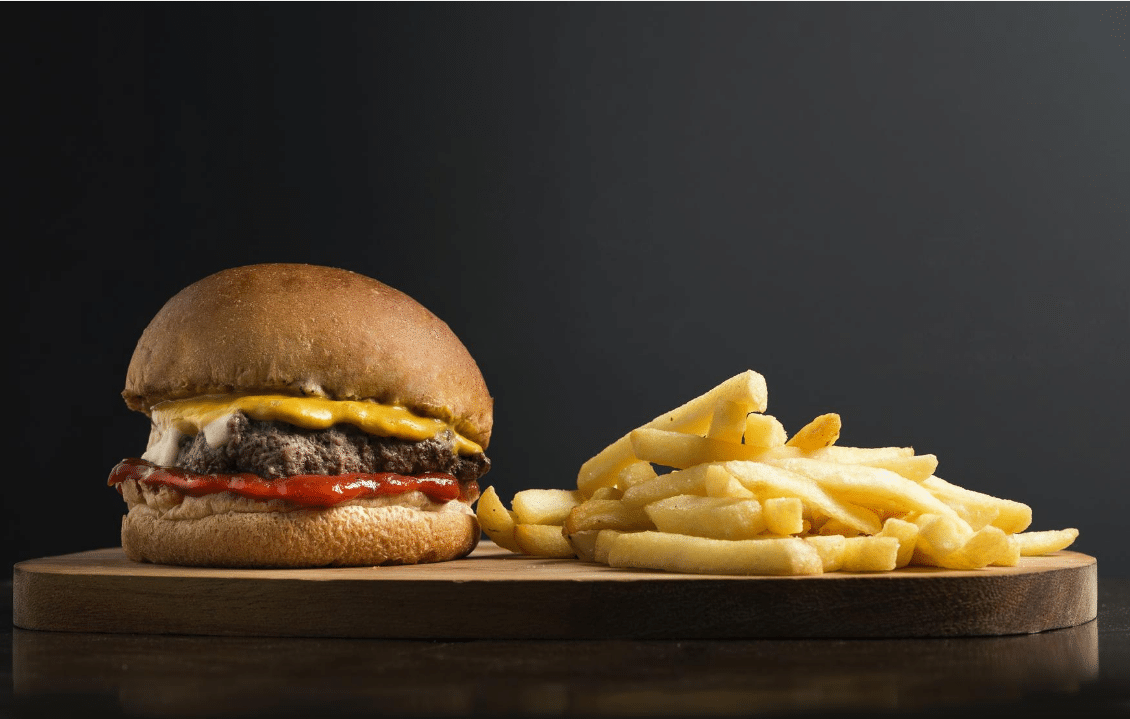
How much should we eat?
As part of a healthy, balanced diet we should be aiming to get around 30-35% of our calories from fats. Split these across the three healthy fat types (and avoid Trans fats).
Remember that fats contain around twice as many calories per gram as carbs and proteins so your plate should be approximately 1/6th fat.
This also works out as around 80g of fat per day if you are trying to consume around 2,200 calories per day.
Storing oils
Oils can go rancid, especially when exposed to air, heat and light. Those that have a low smoke point will go rancid quicker. The good news is that rancid oils smell and taste different, usually rank or bitter, due to these chemicals, so if in doubt you can smell it or taste a little.
Oils should be stored in airtight jars therefore and kept in the dark i.e. don’t keep it on the side by your stove… you’re losing nutrients and risking eating a rancid oil.
There’s also a higher chance of chemicals leaching out of plastic bottles when in the presence of heat and light so please stop storing it by your stovetop for convenience!
Disposing of oils
Reusing fried or cooked oil which has solidified is not healthy. It has already started to degrade under the heat, so to heat it again will increase the chances of it breaking down and releasing aldehydes etc.
Oil should not be put down a drain, even if it’s liquid and cool as it floats on the surface of the water and blocks the oxygenation of water. Cooking oils can be recycled, but there aren’t many places for the general public to do this. The local tip usually accept it.

What do we need to think about when choosing an oil?
What is the smoke point?
This is one of the most important things to think about with oils in terms of our health.
The smoke point is the temperature at which the oil starts smoking and goes rancid. This varies massively depending on the oil. Smoking is a sign that the oil is breaking down, which can cause them to release chemicals that give foods a burnt/bitter flavour and release harmful free radicals. A group of chemicals called aldehydes are also released, and these are being linked to cancer, heart disease, dementia and other illnesses [1].
We can avoid these free radicals by using an oil that can tolerate the heat we’re using!
Is it refined or unrefined?
After oils are extracted or pressed, they can either be bottled immediately or refined and processed.
Oils left in their natural state are labeled as unrefined, cold-pressed, raw, virgin, or unrefined. These oils tend to retain flavors, as well as beneficial minerals, nutrients, and enzymes.
However, these oils tend to have lower smoke points and are best used for very low heat cooking or raw, like salad dressings or finishing drizzles.
Refined oils are processed through filtering, bleaching, or heating to remove the volatile compounds that break down in virgin oils. The resulting product offers a neutral taste, long shelf life, and high smoke point. This sounds like something we’d like, but unfortunately causes issues for the people working at extracting the oil as the hexane chemicals are not healthy! It also comes with a reduction in some of the nutrients and there’s also the extra energy requirements of the processing and the chemical runoff and pollution of the environment.
Cold pressed are the most eco-friendly. These use pressure to extract the oil.
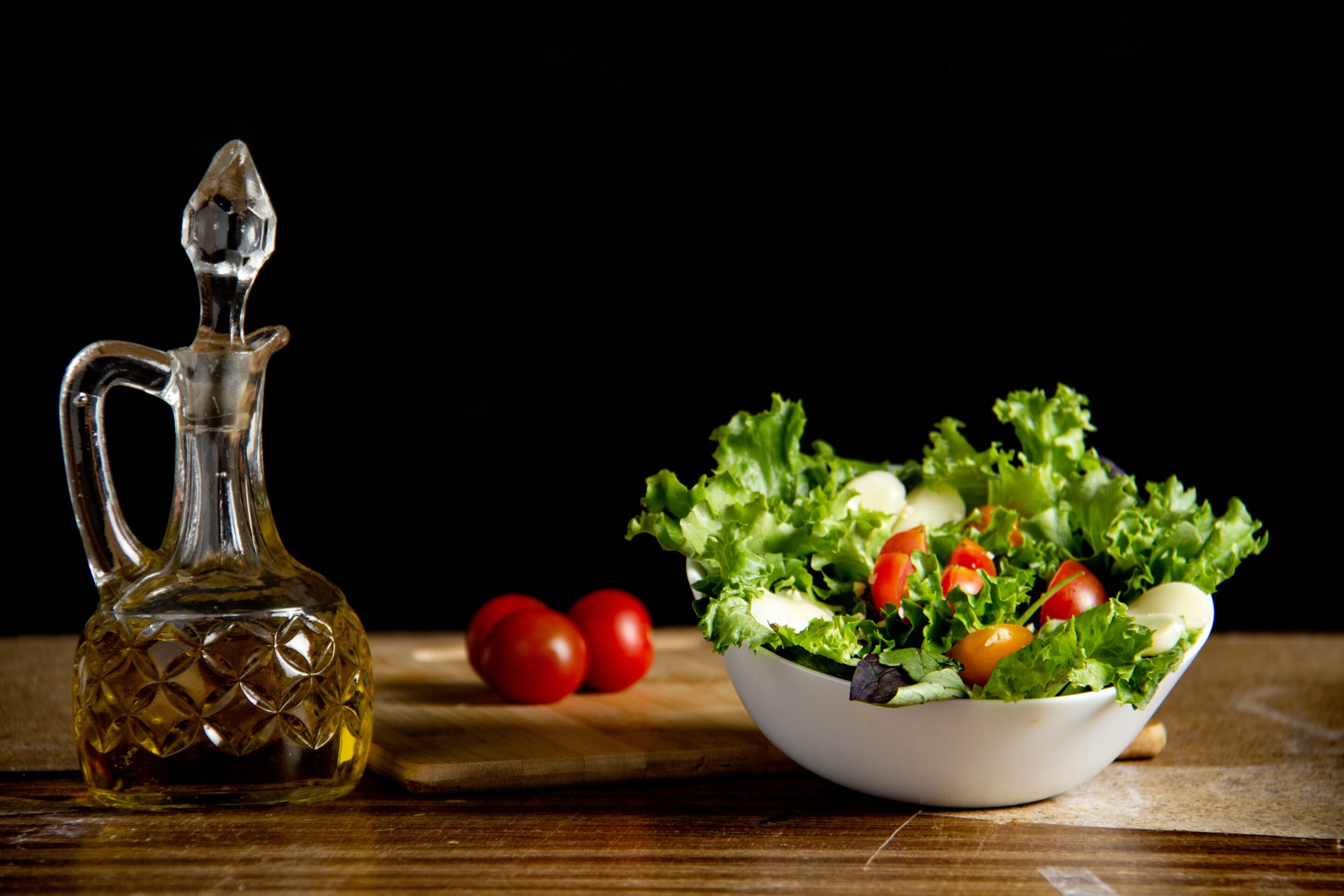
How is it grown?
Canola (a form of rapeseed), soy, corn and cottonseed oils are generally GM (genetically modified). This is an area of much dispute, with some people saying that GM crops will solve world hunger, and others finding that not only do they cause resistant forms of bugs and weeds (effectively negating any benefits), they may also be harmful to our health and are causing some major financial issues for farmers as the seeds cannot be kept from one crop to the next as they are ‘owned’ property, and are much more expensive. It all sounds like a very unethical practice run for profit and NOT as a solution to world hunger.
Organic crops will not have used the pesticides and fertilisers which contaminate soils and water supplies and drastically reduce biodiversity in these areas, so is by far the most eco-friendly and healthiest option.
Where is it grown?
This doesn’t matter so much for our health, but we should always be aware of the footprint of our foods. Products which are grown in unsustainable ways on the other side of the world would be best avoided in favour of one which has been produced more locally, or using sustainable methods which support local populations rather than exploit them!
Some oils grown in vast monocultures, or whose demand is increasing (like olive oil) can lead to deforestation and degradation of vast areas.
What is it packaged in?
Some oils , especially the organic oils, come in glass, which is generally accepted as being more recyclable than plastic. Also, glass ending up in landfill would be less serious than the plastic ending up there and breaking down into microplastics…
Avoiding plastic packaging also lessens the chance of chemicals leaching into the oil from the plastic once the bottle is opened. Unfortunately, PET #1 and PVC #3 plastics are more likely to leach, and chemicals leach into fats better than other products, especially when exposed to light and heat. PVC #3 is also much harder to recycle…
There is the issue regarding the weight of glass however, especially if it’s been bottled on the other side of the world…
To maintain the quality of the oil, it’s best to use a smallish (depending on how quickly you will use it and the stability of the oil), dark bottle. We have a conflict with eco-friendly values here, as buying in bulk would be a better choice. Given the negative health impacts of rancid oils, I feel this is one of the places we can be excused for not being perfect!
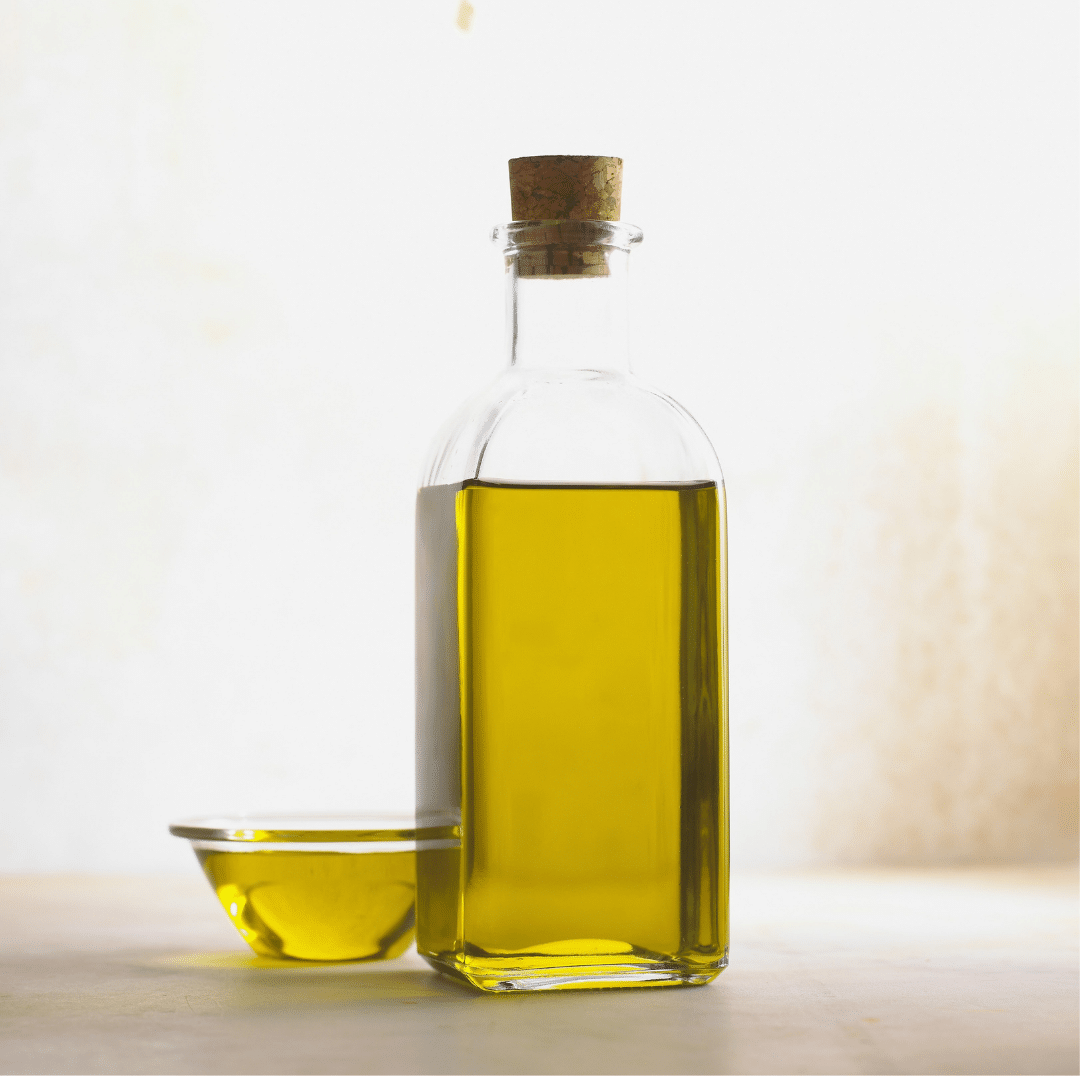
Does it have a flavour?
Sometimes the oils rich flavour is desired for certain types of dishes. For example, sesame oil really compliments Asian cuisine.
In other cases, extra flavor in the oil will muddle the final outcome of the dish. In these cases, opt for neutral oils like peanut oil, vegetable oil, or canola oil.
In addition to their flavor difference, neutral oils also tend to have higher smoke points, making them suitable for frying.
How do the cooking oils stack up on the eco-friendly and healthy cooking oil scale?
Canola (Rapeseed) oils
Smoke point: 204C
Natural in flavour.
Used for frying and deep frying.
This is an engineered oil made from rapeseed. Mainly grown in the US and Canada. Generally GM, unless organic, and may be grown in unsustainable ways.
Due to the GM nature, it has to go through an extensive extraction process that turns it into a partially hydrogenated or trans fat.
This is also grown in the UK as rapeseed, which gives it a tick for local. As it’s not GM in the UK, the harsh chemical processing is not required.
British cold pressed rapeseed oils have a nutty flavour and is great for reducing LDL (bad) cholesterol. As well as containing a lot of omega 6 fatty acids, it has a lot of omega 3 fatty acids, which are linked to a reduction in cardiovascular and other diseases. It’s also high in vitamin E.
Although they are a mono-culture, the yellow flowers are an important food source for bees and is used to produce honey.
Oilseed rape also produces the highest yield of oil per unit of land, so scores high on efficiency. It’s water use is moderate and carbon impact is low. Because of where it’s grown, there’s also not too much of an issue with deforestation (it’s grown on existing land in Europe and the US) [5].
Unfortunately there’s not much organic production in the UK yet.
Avoid canola oil – there’s no good reason to eat it! British cold pressed rapeseed is much better for you and scores well on the eco-friendly scale.
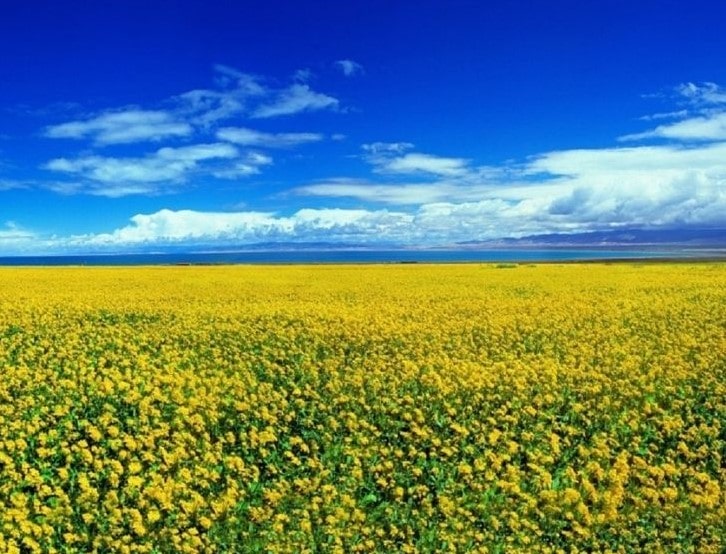
Olive oil
Smoke point: Extra virgin = 163-190C
Olive oil is one of the best studied oils, and it has been shown that people who regularly consume olive oil are less likely to suffer from cardiovascular diseases and they may protect against depression 😊. They even seem to have some cancer fighting properties.
Virgin olive oils are generally produced in Europe, which is a tick for sustainability. There are however, reports that large-scale olive plantations in Greece, Italy, Spain and Portugal are using so much water they’re turning other regions into deserts!
There are also concerns again with the herbicide, pesticide and fertilisers used entering the water table as the process to extract releases a lot of chemicals.
To save time and costs, olive oil is now often extracted using a two-step process, which creates harmful by products which are released into the environment.
These issues are avoided by buying organic. For now these are smaller scale farms and areas with less impact and don’t use the chemicals.
With a high water requirement and carbon footprint, olive oil does not stack up well on the eco-friendly scale [8].
With the health benefits, if you can get an organic, unrefined olive oil from Europe you’re probabaly ok. But there are other cooking oils which have a lower impact.
Who to buy olive oil from?
To avoid the main players like Unilever (who own most of the brands on the supermarket shelves ☹) you may have to order in from elsewhere…
The Good Shopping Guide (Ethical Cooking Oil Archives – The Good Shopping Guide )has ranked brands of cooking oil based on a variety of ethical considerations like:
- Whether GM materials are used
- If it’s organic
- If it’s Fairtrade certified
- If there are public record criticisms of the company
- Any ethical accreditations
- Whether they have an environmental report
Suma win by a mile, followed by Meridian and Filippo Berio. The good news is, Filippo Berio is available in some supermarkets like Tesco. Suma can be bought from a few online stores, including realfoods.co.uk Organic Extra Virgin Olive Oil Cold Pressed in 500ml from Suma (realfoods.co.uk)
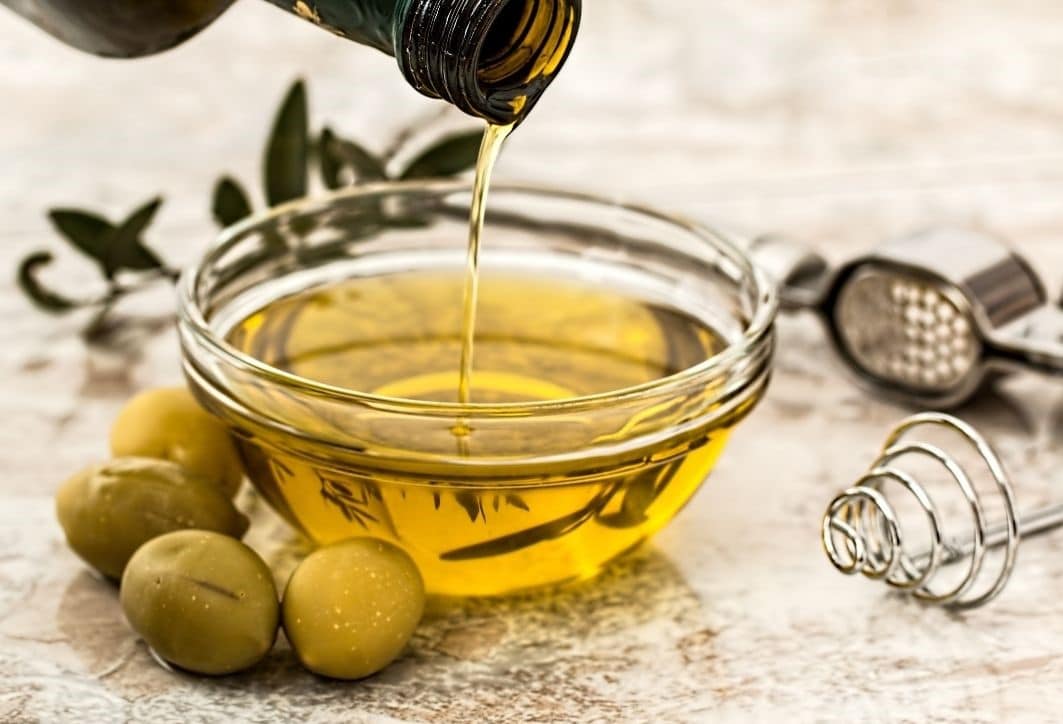
Avocado oil
Smoke point 265-271C
Very versatile with a buttery flavour.
Best used for sauteing, frying, sauces and salad dressings.
It’s packed full of antioxidants and other beneficial polyphenols. It is beneficial for eye health, contains lots of good ‘HDL’ cholesterol to improve heart health and reduce blood pressure and is great for the skin when applied directly.
As with most foods which increase in popularity suddently, the increased demand is leading to deforestation, particularly in areas of Mexico. Large scale monocrop farms using chemicals are leading to a reduction in biodiversity too. It’s a good crop though, as it requires comparatively little water and has a pretty low carbon footprint to grow [7].
With lots of health benefits, if we buy from smaller organic farms, this becomes a pretty sustainable oil, especially if we use avocados grown in Europe.
Choose a brand who use hexane-free extraction and organic avocados. Ideally with unrefined and unbleached oil to reduce the risk of chemical contamination and maximise the nutrients. Someone like Naissance Certified Organic Virgin Avocado Oil. A runner up is Bella Vado Premium Avocado Oil from California.
Coconut oil
Smoke point: 177C
This oil has received a lot or positive news with people hailing it as a superfood, and then got a load of negative press! Is it good or bad?
Made mainly from saturated fats (which is why it’s solid at room temperature), some people avoid it as ‘bad fat’. But early research has shown that our bodies metabolise coconut oil’s saturated fats differently to meat or dairy based saturated fats.
It contains good cholesterol and lowers bad and helps reduce the presence of different bacteria and viruses in our body. There have also been studies linking it with Alzheimer’s and epilepsy benefits and it’s been linked to weight loss with studies showing it increases energy, buring off fat and reducing hunger!
Best for Thai and Indian food, frying , sauteing and baking. Although you can use it for pretty much anything, including skin and haircare!
As an extra point – there’s a lot of debate as to whether coconut is a nut, fruit or seed! It’s generally accepted (and stated by FARE – the Food Allergy Research & Education Network) that it’s NOT a nut, so you shouldn’t have to worry about allergies. (if you’re really allergic to tree nuts do check with your doctor first before eating it though!)
Sustainability wise; coconut farming requires moderate amounts of water and has a moderate carbon footprint, doesn’t require pesticides to grow, is hand picked [6] and is easy to extract which means it requires little energy and chemicals, but does have to travel a long way to get to the UK…
Coconut trees become less productive as they age, and we need to be sure that we help local communities in the developing countries where the coconuts are grown to scale up sustainably and without clearing forests to plant more coconut trees as the coconut oil rush continues to grow. We do this by buying from brands who have invested in sustainable sourcing and fair trade practices.
Overall, a pretty good oil, great for our health, with a moderate impact, expecially if sourced properly.
One such brand is Nutvia, who have an extensive list of eco feats, like planting future coconut trees for poor people in the Philippines. The oil is cold-pressed and never refined deodorized or bleached.
Another brand is Spectrum Organics, who also use organic, no GMO ingredients and chemical free extraction methods.
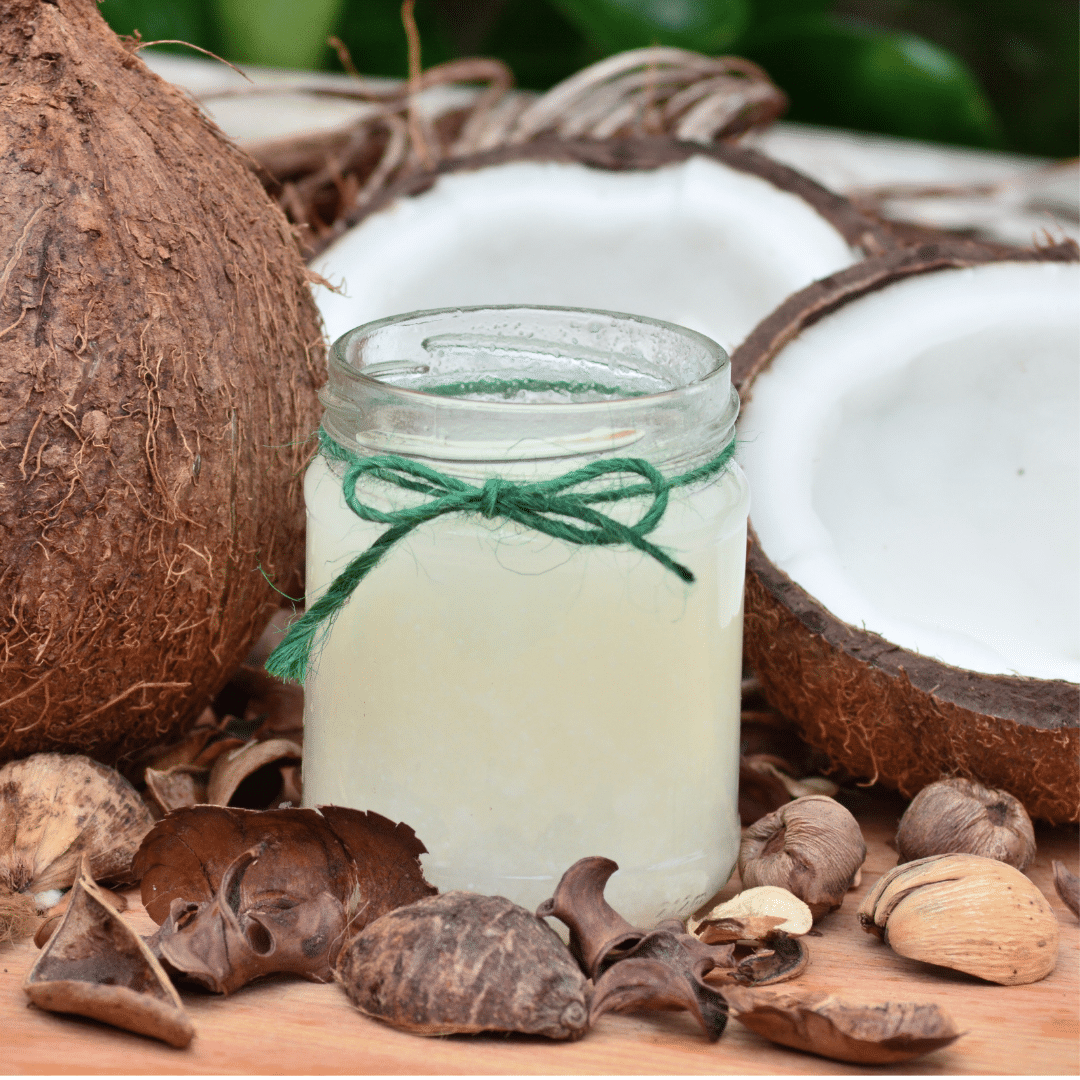
Vegetable oil
Ok, so this doesn’t actually come from vegetables at all!! Like canola, it’s made from rapeseed but then processed with a petroleum solvent, combined with acid and treated with chemicals for colour. Still want to eat this??
This is pretty unnatural for the body to digest and in 2015 beat sugar in a rating of the worst foods a human can eat.
Skip this one in favour of other oils! (this includes spreads…)
Grapeseed oil
Smoke point: 199C
Natural tasting oil, versatile.
Use for sauteing, frying and dressings. Also good for baking (better than olive oil).
This is one which has grown in popularity over the last few decades, but I had never heard of.
Made from grape seeds, it contains high levels of vitamin E (although not per calorie), and has been linked to lowered blood cholesterol levels and reduced chances of heart disease.
It is also very high in omega 6 fatty acids, and an imbalance of these in the body (towards the omega 6 side) has been linked to inflammation in the body, leading to increased rates of chronic disease… this is all fairly new however and more research is needed.
The grapeseeds are a bi-product of wine making, so from a sustainability point this is turning a waste product into something useful = winning! Unfortunately, they tend to use solvents to extract, rather than the much healthier cold-pressing. Hexane can have negative impacts on our health, and is known to be unhealthy for the workers.
Although this seems like a great oil at first view, it doesn’t come near the top in the oil charts. Skip this one.
Flaxseed/linseed oil
Smoke point: 107C
Has a nutty taste and shouldn’t be used for cooking.
Use as a finishing oil for dips, dressings and smoothies.
Unfortunately, raw flaxseed oil is very reactive. Cold pressed oils are easily oxidised and becomes rancid rapidly unless refrigerated. Not one to keep sitting around for a long time! But it is cold pressed and therefore sustainable.
This oil is high in omega 3 fatty acids which is great for protecting your heart health and reducing inflammation, lowering future chances of chronic disease.
If you aren’t taking fish oil, or getting two servings of fatty fish every week, this oil can be your answer to make sure you’re not deficient in omega 3 fatty acids.
This oil should be part of your repertoire, especially if you’re a vegan or vegetarian and not eating fish. Remember to keep it in the fridge though and use it up fast!
Hemp seed oil
Too sensitive to be heated.
Has a nutty, rich flavour and dark green colour.
Use for a finishing oil, marinade or in dressings
Naturally rich in omega 3, 6 and 9 (in a healthy balance), as well as vitamin E and D.
Not grown in large scale, so pretty much any you can find will be organic and cold pressed.
If you can get hold of some, it’s going to be a pretty good choice for your health and the environment.
Hempiness are EU grown and UK packaged, so they get a tick there too…
Peanut/groundnut/arachis oil
Smoke point: 232C
Peanut oil has been linked to reduced risks of heart disease and lower high cholesterol levels. This oil also contains resveratrol which has been found to protect against different types of cancer, degenerative nerve disease and viral and fungal infections. It’s also rich in vitamin E, which is not all lost during cooking or frying.
Used in Asian cuisine, it has a mild nutty flavour.
Use for frying, roasting and grilling.
Generally grown in China, India, Myanmar and Nigeria [2].
Peanut production has a relatively high water requirement and carbon footprint, but doesn’t cause much destruction, especially if organic. There are also issues with possible exploitation of workers [2].
Get your resveratrol from other sources (red wine 😊, raw cocoa powder 😊, red grapes, peanuts, pistachios and blueberries and most other berries) and skip this oil.
Sesame oil
Smoke point 210C.
A great all purpose oil. Use toasted for more flavour.
Use in Asian, Mediterranean and Middle Eastern foods.
Most of the sesame seeds are produced in the US.
Growing the sesame has a high water requirement, a medium carbon footprint and causes low levels of environmental destruction [3]
Other than for the flavour, there’s no specific reason to use this oil.
Sunflower oil
Smoke point 225C.
Good for baking, frying and salad dressings.
Growing sunflower oil has a high water and carbon footprint, so the sustainability scores are not great. It’s not contributing to additional land clearance significantly though [4].
High in vitamin E and omega 6. Whilst this is one of polyunsaturated oils which are ususally considered to be the most healthy, reasearch is showing that an imbalance between omega 3 and 6 can cause inflammation in the body.
Unless you are getting very high levels of omega 3 I would avoid this oil in favour of others.

Conclusions
The best oil to use will vary depending on the circumstance, which is where this can get a little more complicated. It really isn’t a one oil fits all situation!
The harsh reality is that the way that cooking oils are produced is not very sustainable. If you can find an oil which is organic, unrefined and cold pressed, then you are winning as far as the world goes. Even just ticking a couple of these is still an improvement! If you keep choosing the cheap cooking oils, you are contributing to more forest destruction, soil degradation and a decrease in biodiversity. Sad but true… You’re also missing an opportunity to get some useful nutrients and possibly consuming harmful chemicals.
Minimising our use of oils and avoiding deep frying will help.
There are a lot of oils above, but this would be my choice:
For salads and uncooked use there are lots of options:
– unrefined, organic European Hemp seed oil
– European unrefined organic avocado oil
– unrefined British rapeseed oil
When cooking at a medium heat:
– unrefined British Rapeseed oil
– virgin coconut oil, especially in a dish where the hint of coconut would match well, in a Thai or curry dish for example.
High heat cooking:
– unrefined British rapeseed oil
– European organic unrefined avocado oil
In baking
– unrefined British rapeseed oil.
If you’re a vegan or vegetarian and therefore struggle to get your omega 3, this oil is a great option, but be careful how you store it as it goes rancid quickly.
If you want a one oil fits all, you’re best choice is an unrefined British Rapeseed oil. High smoke point, health benefits and locally grown.
Only use what you really need.
If you’re starting out on the eco journey, and buying from other sources isn’t yet in your repertoire, look for an unrefined organic olive oil on the supermarket shelves like Philipe Berio, or a British rapeseed oil. If the coconut oil in your supermarket is organic, you can grab that too.
(a little disclaimer on this, this is all my personal opinion, based upon my research)
References
[1] Cooking with vegetable oils releases toxic cancer-causing chemicals, say experts (telegraph.co.uk)
[2] Peanut Oil [Ingredient Guide for Health, Environment, Animals, Laborers] — HEALabel
[3] Sesame Oil [Ingredient Guide for Health, Environment, Animals, Laborers] — HEALabel
[4] Sunflower Oil [Ingredient Guide for Health, Environment, Animals, Laborers] — HEALabel
[5] Canola Oil [Ingredient Guide for Health, Environment, Animals, Laborers] — HEALabel
[6] Coconut Oil [Ingredient Guide for Health, Environment, Animals, Laborers] — HEALabel
[7] Avocado Oil [Ingredient Guide for Health, Environment, Animals, Laborers] — HEALabel
[8] Olive Oil [Ingredient Guide for Health, Environment, Animals, Laborers] — HEALabel

